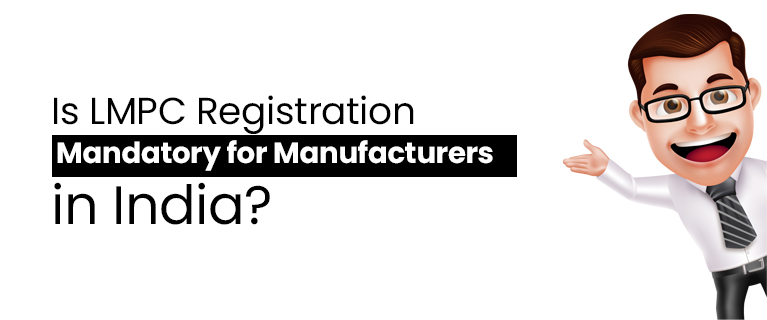Is LMPC Registration Mandatory for Manufacturers in India?
In India, manufacturers across various industries often come across regulatory requirements and registrations that they need to comply with to operate legally. One such registration that has gained prominence in recent years is LMPC Registration. But the question that arises is, "Is LMPC Registration mandatory for manufacturers?" In this blog, In this blog, we will dive into the concept of LMPC Registration including its significance, and whether manufacturers in India are under compulsion to acquire it.
Understanding LMPC Registration:
LMPC, or Legal Metrology Packaged Commodity Registration, falls under the purview of the Legal Metrology Act, 2009. It pertains to businesses that deal with the packaging and sale of commodities, especially those that are pre-packaged and intended for retail sale. The primary objective of LMPC Registration is to ensure transparency and fairness in trade by providing consumers with accurate information about the products they purchase.
Read also this -: What are the Documents Required for LMPC CertificateSignificance of LMPC Registration:
LMPC Registration holds several key significance points, including:1. Consumer Protection: LMPC Registration ensures that consumers receive essential information such as the quantity, weight, and price of the packaged commodity, enabling them to make informed purchasing decisions.
2. Fair Trade Practices: It promotes fair trade practices by preventing deceptive packaging, misrepresentation, and fraudulent labelling.
3. Standardization: LMPC Registration helps standardize packaging and labelling practices, creating a level playing field for businesses and consumers alike.
4. Legal Compliance: Registered businesses are legally compliant with the requirements of the Legal Metrology Act, reducing the risk of legal disputes and penalties.
Is LMPC Registration Mandatory for Manufacturers?
The answer to whether LMPC Registration is mandatory for manufacturers in India depends on the nature of their products and how they are packaged and sold.
1. Type of Commodities: LMPC Registration is typically mandatory for manufacturers dealing with pre-packaged commodities. These include goods that are put into a package of any nature without the purchaser having an opportunity to influence the quantity.
2. Exemptions: Certain commodities are exempt from LMPC Registration, such as fresh fruits and vegetables, loose grains, and medical devices. Manufacturers of these exempted products do not require LMPC Registration.
3. Retail Sale: LMPC Registration is particularly relevant for products intended for retail sale. Manufacturers that primarily supply to other businesses or industries may not need LMPC Registration if the goods are not meant for direct consumer purchase.
4. Importers and Re-packers: Importers who re-package products for retail sale in India are also subject to LMPC Registration requirements.
5. State-Specific Regulations: Manufacturers should also be aware of state-specific regulations, as some states in India may have additional requirements or exemptions regarding LMPC Registration.
Read also this -: Navigating the LMPC Certification for ImportsConclusion:
In conclusion, while LMPC Registration is not mandatory for all manufacturers in India, it is a crucial requirement for businesses involved in the packaging and sale of pre-packaged commodities intended for retail. Compliance with LMPC Registration ensures that manufacturers uphold transparency, fair trade practices, and legal standards in their operations. Therefore, manufacturers should carefully assess the nature of their products and their intended distribution channels to determine whether LMPC Registration is obligatory for their specific case. It is advisable to seek guidance from legal and regulatory experts to navigate the complexities of LMPC Registration and ensure full compliance with the law.




Comments
Post a Comment